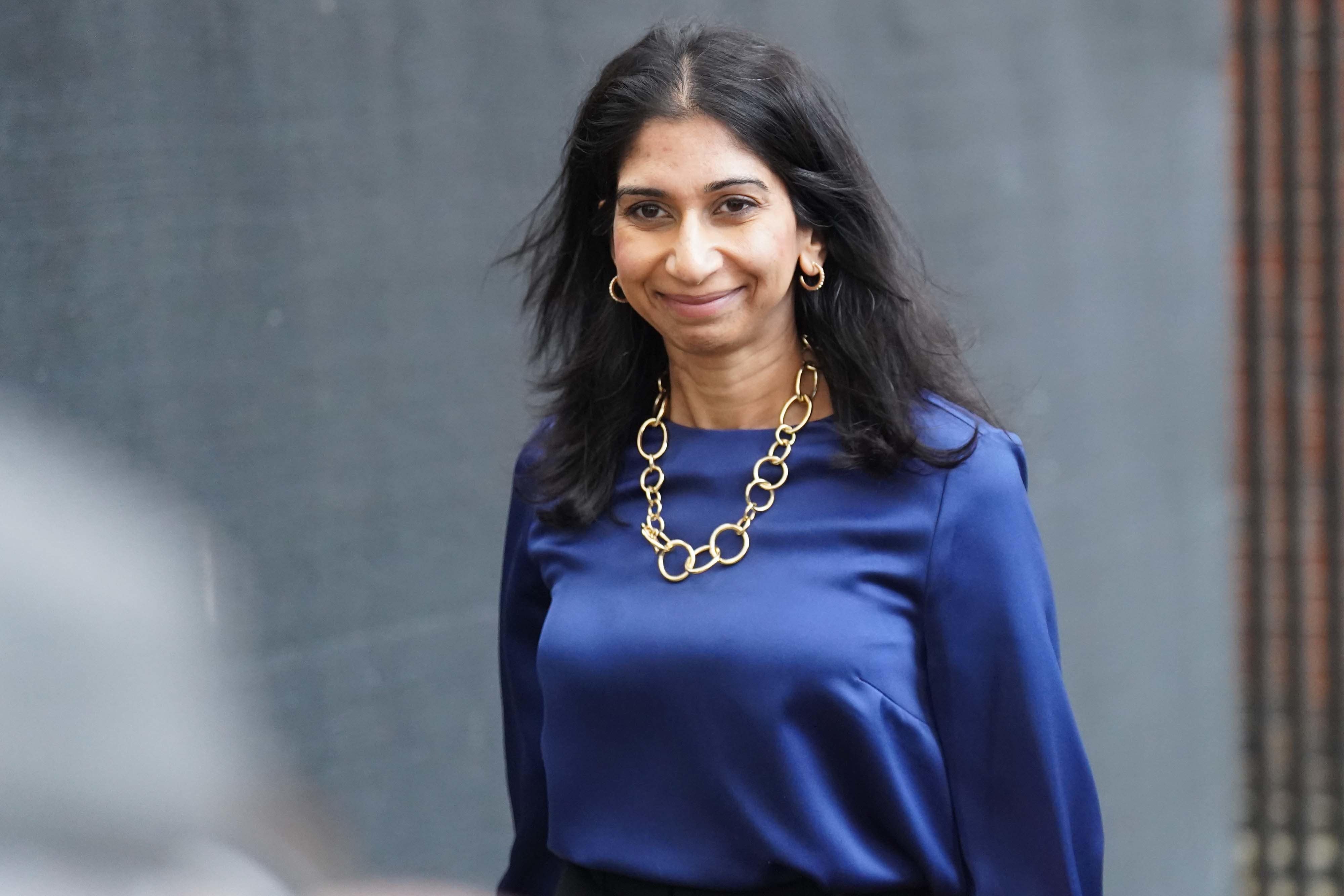Suella Braverman scraps year-long recruitment process for modern slavery watchdog
Home secretary ‘committed to new open competition’ - but commissioner will not be in post before new laws targeting small boat migrants presented to MPs

Your support helps us to tell the story
From reproductive rights to climate change to Big Tech, The Independent is on the ground when the story is developing. Whether it's investigating the financials of Elon Musk's pro-Trump PAC or producing our latest documentary, 'The A Word', which shines a light on the American women fighting for reproductive rights, we know how important it is to parse out the facts from the messaging.
At such a critical moment in US history, we need reporters on the ground. Your donation allows us to keep sending journalists to speak to both sides of the story.
The Independent is trusted by Americans across the entire political spectrum. And unlike many other quality news outlets, we choose not to lock Americans out of our reporting and analysis with paywalls. We believe quality journalism should be available to everyone, paid for by those who can afford it.
Your support makes all the difference.Suella Braverman has scrapped a year-long recruitment process for a new slavery watchdog, further delaying the appointment as the government makes it harder for victims to gain support.
The home secretary has committed to running a new competition for the Independent Anti-Slavery Commissioner, but the post has already been empty for over eight months and no advert is yet online.
The previous recruitment process started in December 2021, with the government public appointments website saying that interviews were conducted last April.
The Home Office maintained that a final decision on the appointment remained “under consideration” until Sunday, when it issued a new statement saying: “The home secretary recognises the importance of the role of Independent Anti-Slavery Commissioner (IASC), and has committed to running a new open competition to recruit for this role.”
No reason has been given for Ms Braverman’s decision to end the process, which came after the prime minister told parliament that the government would “significantly raise the threshold someone must meet to be considered a modern slave”.
The vacancy follows a series of controversies over delayed public appointments, including reruns of the recruitment of a Victims Commissioner and National Crime Agency head after ministers reportedly opposed individual candidates.
The law states that the home secretary “must appoint a person as the Independent Anti-Slavery Commissioner”, meaning that the failure to fill the post is open to legal challenge. Their role is to monitor the prevention, detection, investigation and prosecution of slavery and human trafficking offences, while making official recommendations to the government and public authorities.
The recruitment of the previous slavery watchdog took six months, suggesting that a successor will not be in post until the summer.
But Rishi Sunak has pledged to bring new laws changing the treatment of small boat migrants forward early this year, meaning that they will be considered by MPs before being scrutinised by an independent watchdog.
In an article published by Conservative Home on Monday, the prime minister wrote: “We must stop the boats. It is a moral imperative and we are going to introduce new laws to parliament very soon, making sure that if you come to this country illegally, you can never settle here.”
The home secretary has repeatedly claimed that modern slavery laws are being “gamed” by small boat migrants, despite the Office for Statistics Regulation saying available figures do not support the assertion.
Dame Sara Thornton, who was the Independent Anti-Slavery Commissioner until April 2022, has accused the government of “exaggerating” abuse claims and undermining protections for modern slavery victims.
She told The Independent the vacancy means the watchdog has “no power and no voice”, warning: “We lack that independent objective voice which is so necessary in the heat of political debate.
“A commissioner should be giving evidence to parliament, speaking to officials, speaking to ministers and keeping their announcements, their policy and prospective bills under scrutiny.”
A statement by the IASC office following her departure said that without a commissioner, staff engaging with the government “will have no remit to provide views or take on or contribute to new work”.
Maya Esslemont, director of the After Exploitation charity, told The Independent she did not know of any specialist organisations being consulted on ministers’ plans for changes to modern slavery processes.
She said: “We know that cases of modern slavery are rising, not just amongst those from source countries such as Albania but also for UK citizens, so it is vital that the root causes of this complex crime are investigated and addressed by the government, rather than wished away through policies which would, in effect, artificially suppress the recorded number of victims whilst in reality allowing abuse to persist.”
A group of United Nations experts have said the government must “immediately” appoint a new commissioner, and that the role was required under Theresa May’s 2015 Modern Slavery Act.
A Home Office spokesperson said: “The UK has led the world in protecting victims of modern slavery and we will continue to identify and support those who have suffered intolerable abuse at the hands of criminals and traffickers.”
They said the Modern Slavery Act gave the home secretary responsibility for appointing a commissioner, following consultation with the Scottish government and Northern Ireland executive, and that the process would be run in accordance with the governance code for public appointments.



Join our commenting forum
Join thought-provoking conversations, follow other Independent readers and see their replies
Comments